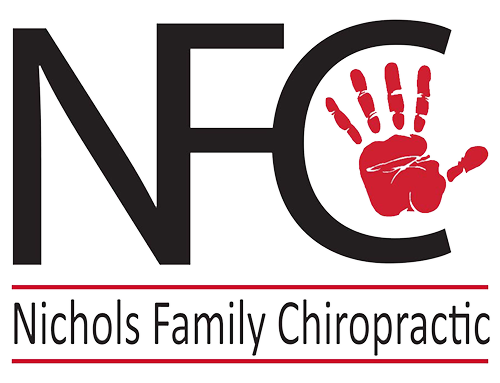What should I be doing at home?
Getting your spine adjusted is essential to the function of the nervous system and maintaining the structure that our musculature attaches to. We were given 24 bones that surround and protect that nervous sytem so that we can bend and move. Our bones move every day with our daily activities, therefore, getting adjusted on a regular schedule should become part of the maintenance of your body. But what can you do at home to supplement your chiropractic adjustments and help your body function and heal as it should?
I am not going to re-invent the wheel here, the answer is exactly what we have been told for our whole lives; eat right, drink more water, exercise/stretch, and get enough rest. It sounds simple, but with our busy schedules, it is far too easy to put the basic principles of self-care down the list of priorities. My goal is to make those things easier for everyone, so here are my simple recommendation.
Eat better- Better does not mean perfect. If you are the person that can never eat a carbohydrate again and be happy, then more power to you, but most of us will have an extremely hard time doing that. Instead, aim to reduce grains (bread, pasta, cereal, etc) and dairy (milk and cheese) which will help to decrease inflammation in the body and will likely have the added benefit of decreasing body weight, easing pressure on your joints. When grocery shopping, stay on the outer perimeter of the store. The aisles are primarily processed foods. Your diet should be mostly meats, vegetables, and fruits. When you screw up with your diet, make sure that it is the exception, not every other day.
Drink more water- The old thinking was that we should drink 8 glasses of water per day, which is good for some people and not for others. The way I want you to think about it is this; drink half of your body weight in ounces of water per day. I weigh 200 pounds, which means I should be drinking 100 ounces of water per day. That is a lot more than the 64 ounces of water that I would be getting from just 8 glasses. This means you will be spending a little bit more time in the bathroom, especially when you first make the switch to drinking more, but your body will adjust. Water means water, not sweet tea/coffee/tea/gatorade/juices/diet soda or any of the other excuses for water.
Exercise/stretch- Keep this simple, we are not looking to become power lifters or marathon runners here. Spend some time doing cardiovascular exercise (fast walking, jogging, running, biking, rowing, elliptical, swimming) 3 times per week for a minimum of 20 minutes. If your heart rate is not getting elevated, then it is not achieving the desired outcome. The goal behind cardio is not strength or weight loss, it is heart and lung health. Do some form of strengthening (weights, bodyweight, resistance bands) 3 times per week, making sure to hit all of the major muscle groups. Stretch as often as you can. Several times per day. If you stretch one side of your body, make sure to stretch the other side as well (left/right, front/back). To make it easier, in your own living room, go on YouTube and do one of the million yoga videos that you can find and it likely will do a great job of getting you to stretch while also strengthening your stabilizing muscles.
Get enough rest- This one is not rocket science, get more sleep. Aim for 8 hours per night. Go to bed earlier, there is no good reason to stay up until midnight. Sleep in whatever position you get the best sleep in. Sleep on whatever pillow/bed you get the best sleep on. Your body needs rest to build itself back up.
If you can do better at these 4 things, your body will thank you and you can expect less discomfort and better function.

